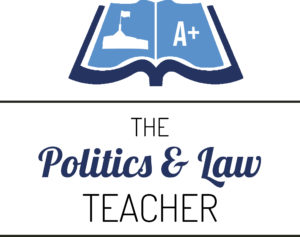NZYQ and issues related to political and legal power and the legislative and judicial processes
Cross reference: Update V7N1 Jan/Feb 2024: High Court NZYQ decision overrules controversial Al-Kateb case
The High Court’s Decision: Legal Power and Judicial Process
In November 2023, the High Court of Australia delivered a landmark decision in NZYQ v Minister for Immigration, Citizenship and Multicultural Affairs. This case is a contemporary example of legal power and the judicial process, highlighting the judiciary’s role in interpreting and upholding constitutional principles.
Roles and Powers of the High Court
The Case
The High Court’s role is to interpret the Constitution, a power vested in it by Sections 75 and 76 of the Constitution.
The case concerned a constitutional question about a stateless Rohingya man, referred to as NZYQ, who had been in indefinite detention since arriving in Australia by boat in 2012.
The main issue was whether the Migration Act 1958 (Cth), which permitted indefinite administrative detention* by the executive branch of individuals like NZYQ, was constitutionally valid.
The High Court unanimously ruled that such provisions were ultra vires (beyond the Commonwealth’s legislative power) as they were punitive measures (i.e. punishments), which, under Chapter III of the Australian Constitution, can only be imposed by a court deciding criminal guilt. The had court ruled that indefinite administrative detention is a punishment and thus unconstitutional.
The NZYQ ruling overturned the 2004 decision in Al-Kateb v Godwin, which had upheld the constitutionality of indefinite administrative detention for stateless persons. Because of Al Kateb, non-citizens could be detained indefinitely by the government if there was no possibility of deportation.
In NZYQ, the court said that administrative detention must serve a legitimate, non-punitive purpose, such as aiding deportation, which was not applicable in NZYQ’s case due to the unlikelihood of his removal from Australia.
The decision had an immediate impact beyond the Rohinga man because it mandated the immediate release of around 140 detainees in similar circumstances, illustrating the High Court’s significant influence on immigration law and human rights protections in Australia through its constitutional interpretation role.
Overruling Al-Kateb v Godwin
The NZYQ decision overruled the 2004 precedent set by Al-Kateb v Godwin, which had previously upheld the legality of indefinite detention for stateless individuals.
The new decision reaffirms the legal principles set by the 1992 Chu Kheng Lim v Minister for Immigration case. The earlier case held that a court should impose punitive detention only after a person is found guilty of a crime.
Legal Power and the Judicial Process
The case illustrates that the High Court is not bound by its own precedents and may overrule its older judgements.
The NZYQ ruling also illustrates the High Court’s role in interpreting the Constitution. NZYQ sets new constitutional limitations on executive power and strengthens the separation of powers by affirming the courts’ singular power to impose punishments.
The NZYQ decision shows the judiciary’s role in protecting liberties. Human rights organisations, including the Australian Human Rights Commission and Amnesty International Australia, celebrated the ruling for aligning Australia’s immigration policies with international human rights standards.
The Roles and Powers of the Opposition and the Accountability of the Executive
Roles and Powers of the Opposition
The opposition has two roles: to hold the government accountable and present itself as a viable alternative government. The Dutton Opposition’s response to the NZYQ decision illustrates both roles.
Question Time and Debates
During Question Time, the Shadow Cabinet plus opposition backbenchers – who are all private members – directly questioned ministers Immigration Minister Andrew Giles &
Home Affairs Minister Clare O’Neil about their actions and decisions related to immigration detention and the release of the 140 detainees.
The Shadow Cabinet spokespersons for Immigration and Home Affairs – Sen. James Patterson and Dan Tehan MHR – led the questioning. In Sen. Patterson’s case, a proxy in the House of Representatives asked questions because the minister is in the lower house. In this way, the Shadow Cabinet mirrors the structures of the government—a strategy that helps it appear as a “government-in-waiting.” Such scrutiny is vital in holding the executive accountable for its actions—or failures to act.
Opposition members also participate in parliamentary debates, critiquing government policies and advocating for more robust measures for handling released detainees with criminal convictions. Debates are also used to highlight alternative policy approaches to differentiate the opposition from the government in the electorate’s mind, hoping to convince voters they would be a better government.
For example, during parliamentary debates on the Migration Amendment (Bridging Visa Conditions) Bill 2023, opposition members raised concerns about inadequate preparation for handling released detainees and the potential risks some of them may pose to the community. These criticisms intensified after one of the released detainees violently assaulted an older woman and her husband during a home invasion in Perth – which occurred after the bill passed. In this case, the opposition focused on the government’s failure to implement the strict new measures adequately.
These debates are an essential part of the democratic process. They allow for a thorough examination of government actions and policies and inform the electorate about the policies of the alternative government.
Committees and Inquiries
Opposition backbenchers serve on parliamentary committees in both houses that examine immigration-related issues, including visas for refugees and asylum seekers. Some of these committees scrutinise bills, while others inquire about various matters.
Parliamentary committees have broad powers to gather evidence, question witnesses, and produce reports that influence law-making in Parliament. They may also highlight areas where the government could improve.
Through parliamentary committees, opposition members can hold ministers accountable and ensure that the government’s handling of immigration and detention policies is scrutinised. Reports produced by these committees often include recommendations for legislative changes and improvements to existing policies.
Ministers cannot serve on parliamentary committees, which is one way the Westminster system achieves a separation of executive and legislative powers despite the fusion of these two branches.
Media and Public Statements
Opposition shadow cabinet members release information to the media to communicate their views on the NZYQ case and criticise the government’s handling of detainees. They try to influence public opinion and pressure the government through press conferences, interviews, and public statements. A free press is essential to democracy because it facilitates this type of accountability and informs the electorate of alternatives, which is important for the opposition’s effectiveness.
Opposition members focus on potential problems and dilemmas—like High Court decisions and their legal implications—to emphasise the government’s responsibility to manage immigration policies effectively. The media helps inform the public and hold the government accountable.
The Bill: Provisions, Controversy and Amendments
The Migration Amendment (Bridging Visa Conditions) Bill 2023 introduces a new immigration bridging visa – called Bridging Visa R (BVR) – and its conditions. This bill was necessary because the imminent release of 140 detainees required a new visa class to legalise their residency status in the Australian community. It was controversial because it introduced strict conditions for those with criminal convictions. Note that those with criminal convictions had already served their sentences and could not be detained because of prior convictions.
Key Provisions
- Purpose: The bill addresses the legal implications of the High Court’s ruling in NZYQ by ensuring non-citizens with no prospect of removal to another country are subject to strict visa conditions.
- Bridging Visa R Conditions: Includes monitoring devices, curfews, regular reporting, and conditions related to employment and financial responsibilities.
- Community Safety and Legal Compliance: Includes measures to keep the community safe while ensuring compliance with visa conditions.
The bill introduced mandatory conditions for BVR holders, such as electronic monitoring and curfews. The bill criminalises non-compliance with these conditions, with mandatory minimum sentences, prompting the Law Council of Australia—a pressure group—to raise concerns about fairness and the impact on rights.
Controversial Aspects
- Lack of Adequate Consultation: The bill was introduced with great haste and without sufficient consultation with groups like the Law Council. There was little opportunity for Parliament to scrutinise the bill, leading to potential unintended consequences.
- New Offences and Mandatory Sentences: Introduces mandatory sentences for breaches, limiting judicial discretion and raising concerns about fairness.
- Complexity and Language Barriers: The affected individuals may struggle to understand the new requirements due to language barriers and legal complexities.
Amendments
The government (Labor Party) drafted the bill and significantly influenced the final law. The government and the opposition (Liberal Party) also influenced the law through amendments. The government introduced nine amendments to refine the bill, while the opposition proposed modifications to enhance community safeguards—two were passed. With agreed-upon amendments, the final bill passed both houses on November 16 and became law after Royal Assent on November 17, 2023.
The government gagged debate to ensure a quick passage of the bill and thus limited opportunities for other parties to influence the lawmaking process. The successful amendments reflected a contested but mostly bipartisan effort to balance community safety and individual rights, although the emphasis is undoubtedly on the former.
Rights Issues: The Parliamentary Joint Committee on Human Rights
The Parliamentary Joint Committee on Human Rights (JPCHR) plays a crucial role in examining the human rights implications of legislation. It keeps Parliament accountable by scrutinising bills for compliance with seven international human rights treaties, covenants, and protocols. It reports on bills and may issue notices of incompatibility with human rights if a bill infringes rights. The PJCHR is one way Australia protects human rights.
The JPCHR’s Report 13 of 2023 addresses the human rights implications of the Migration Amendment (Bridging Visa Conditions) Bill 2023. The committee raised several concerns:
1 Criminalising Breaches of Mandatory Bridging Visa Conditions
The committee noted that the bill grants non-citizens bridging visas with mandatory conditions, including electronic monitoring (by GPS-tracking ankle bracelets) and staying at a notified address. Non-compliance is criminalised, with mandatory minimum sentences. Affected rights include privacy, work, freedom of expression, movement, and association.
The committee expressed concerns that these mandatory sentences limited judicial discretion and could result in disproportionate penalties for minor breaches. It highlighted the need to consider individual circumstances to uphold the principles of natural justice.
2 Additional Mandatory Visa Conditions
The bill includes conditions such as not engaging in disruptive activities and potentially limiting rights to privacy, work, and an adequate standard of living. Non-compliance could lead to visa cancellation, impacting access to work, social security, and Medicare.
The committee emphasised that these additional conditions could severely affect individuals, particularly those already vulnerable. It called for further information to assess their human rights impact and ensure they were implemented fairly.
3 Powers of Executive Officers
The bill grants authorised officers (i.e. executive officials such as police and immigration officials) new powers to install and manage electronic monitoring devices and collect personal information. The broad scope of information sharing could affect the rights to privacy and an effective remedy.
The committee raised concerns about the potential misuse of these powers and the lack of safeguards to protect individual rights. It is seeking more information from the Minister for Home Affairs to assess the compatibility of these measures with human rights standards.
The JPCHR is concerned about the Migration Amendment (Bridging Visa Conditions) Bill’s scrutiny and proportionality. Better scrutiny and proportionality** are recommended to ensure that the new visa conditions and enforcement measures respect rights and constitutional principles.
*Administrative detention is detention by the executive without judicial approval – i.e. non-judicial detention. The executive may detain people for lawful purposes such as deportation. It is not a punishment resulting from a criminal sanction.
**Proportionality is the legal principle that legal measures like sanctions are reasonable, serve a legitimate purpose and match the seriousness of the offence and the situation of the offender. Proportionality is a component of fairness and natural justice.

